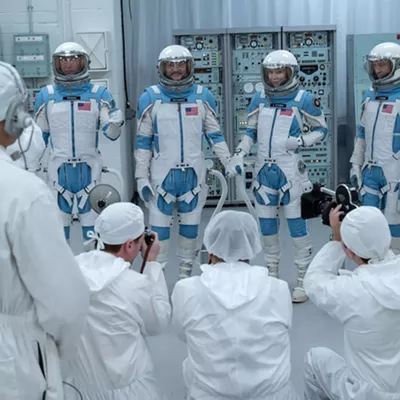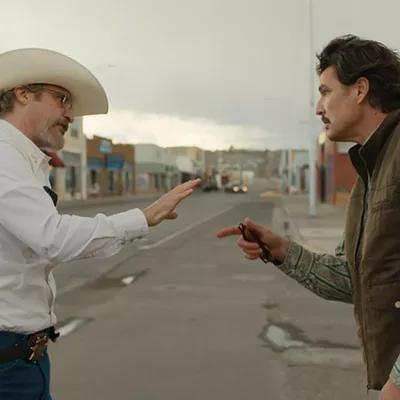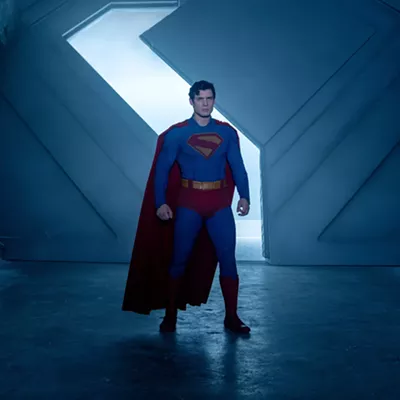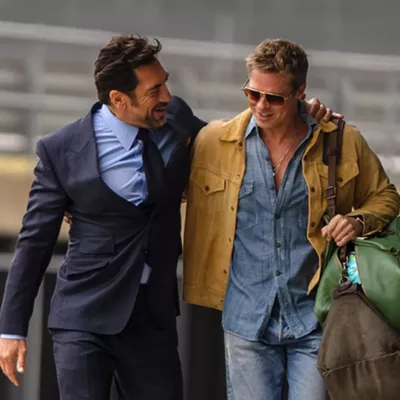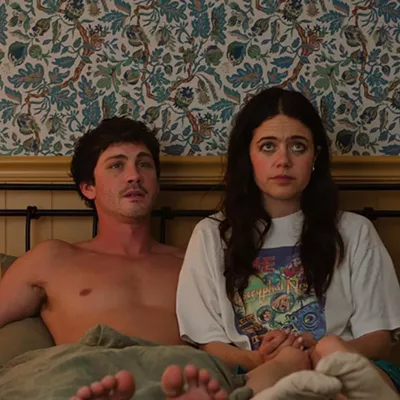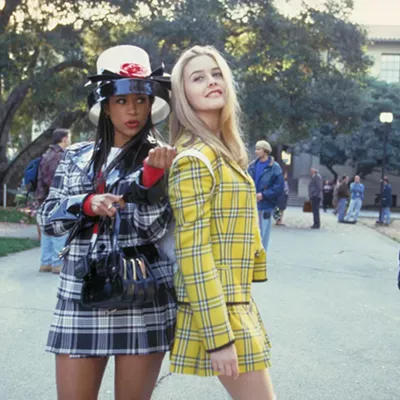It is not every day that one will think of Canadian comedian Nathan Fielder alongside a Cannes-winning documentary, yet that's precisely what happened while watching Tunisian director Kaouther Ben Hania's fascinating Four Daughters. No, it isn't because of Fielder's delightfully bizarre show The Curse that is currently airing on Showtime (even as the documentary also grapples with the interpersonal in a similarly frank fashion). Rather, it was his recent HBO series The Rehearsal about real people acting out challenges and pains in their lives that springs to mind as Four Daughter's best reference point.
Four Daughters takes a similar tact with a Tunisian woman named Olfa Hamrouni who is attempting to process the fact that her two older daughters, Ghofrane and Rahma Chikhaoui, went to join the Islamic State in Libya. She sorts through her emotions with her two remaining daughters, Eya and Tayssir Chikhaoui, while two actors step in for the absent sisters and play out significant moments from the family's traumatic past, which led to this painful present.
Obviously, Fielder's use of this hybrid between documentary and reenactment creates more comedic outcomes in execution, but they have a uniting formal core that succeeds just enough in devastating isolated moments, even if there is much missing on the whole.
It is important to note that neither work is the first to frame a complicated subject through this metafictional conceit. Director Kitty Green, who has since shifted to fictional features like the quietly annihilating The Assistant and last year's similarly disquieting The Royal Hotel, previously made the 2017 documentary Casting JonBenet about the process of finding actors for reenactments surrounding the infamous crime.
Where Four Daughters differs is it isn't built around people who have merely heard of what they're recreating. Instead, the family members are intimately involved. They're living with its repercussions because the events happened to them. The abstract nature of recreating all these moments is made concrete in the eyes of the family watching all these scenes from their memories unfold.
Thus, the documentary dances between the past and the present to the point that the line becomes almost blurred. Scenes where "characters" will reenact something from the past will become interrupted by either the person they're portraying or one of their scene partners delicately shattering the illusion with interjections about what is happening.
One of the most cutting moments involves one of the daughters playing themselves and pulling a knife on someone. There is an intensity to the moment as we see her sister who is both outside of the "scene" yet part of its future bearing the emotional agony of it while watching on. When one of the other actors asks to take a break right in the middle of this and then steps away from the cameras to talk directly to the filmmakers alone about something that is upsetting them, it speaks volumes, as we also see the remaining people in the room process what just happened.
This creates an experience that is distinctly illuminating in a way that neither pure documentary nor pure fiction filmmaking could in isolation. Seeing real people respond with laughter, tears and all the complicated emotions in between as their memories come to life in reenactments before them is striking in a way that feels almost like a surreal dream. Even when some of it proves distancing — the film's exploration of the way people are driven to extremism leaves a lot to be desired, and the ending trying to bring this in feels too rushed — the enduring impact is unshakeable.
You'll wish that you could know more about the two daughters that aren't there, but that's by design as it is all filtered through the recollections of the remaining family they left behind. Even when people may recall things quite differently from each other, this reveals infinitely more than it would if everything were uniform. They speak honestly about how they feel about it all, but everything is still pointedly fragmented in its presentation. It captures a state of being that has been forever broken. The way the documentary pieces this together is then like memory itself: consistently messy, often frustratingly slippery, yet still essential to reckon with. Eat your heart out, Nathan Fielder.




